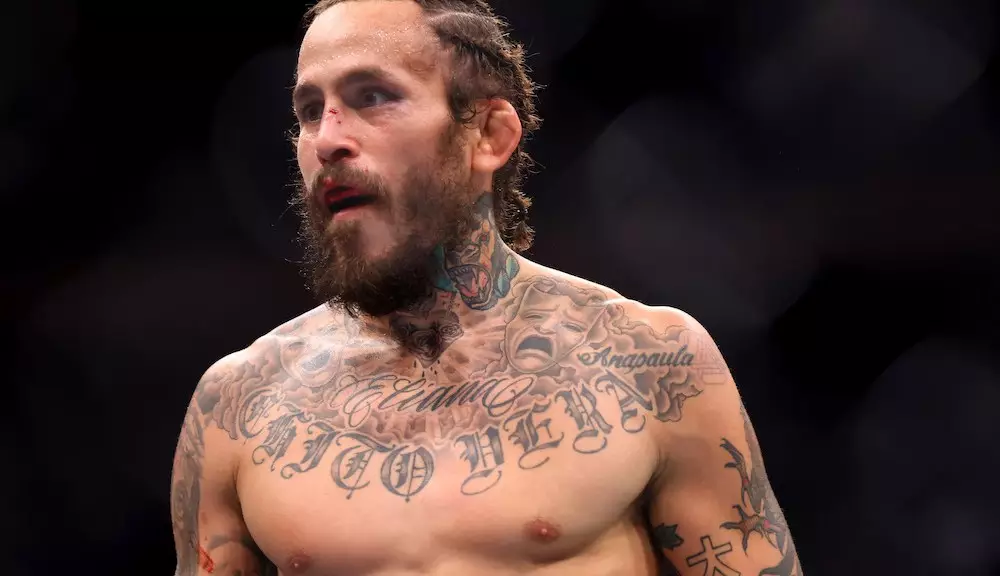Marlon Vera, a notable figure in the UFC bantamweight division, stirred up quite a controversy after his comments on social media regarding the UFC 306 title fight. The bout saw Merab Dvalishvili decisively defeat Sean O’Malley, claiming the bantamweight championship in a dominant performance. Vera’s tweet read, “I call it the other way, but congrats Merab well fought,” which led to a whirlwind of criticism and interpretations questioning his judgment. The backlash highlights the sensitivity surrounding public statements in the world of sports, particularly when they appear to contradict the widely accepted narrative.
In his attempt to clarify his statement, Vera took to his YouTube channel, asserting that his words were taken out of context. He elaborated, indicating that his phrase “call it the other way” did not pertain to a disagreement with the fight’s decision but rather reflected his pre-fight expectations. He had believed that O’Malley, with his physical attributes—size, punching power, and impressive takedown defense—would win against Dvalishvili. This particular fallout from Vera’s tweet illustrates the complexities of athlete commentary and the potential for miscommunication in a digital age where brevity often leads to misunderstanding.
During his reflections on the fight itself, Vera made notable observations regarding both fighters’ approaches. While praising Dvalishvili’s execution, Vera commented on O’Malley’s strategy, suggesting that it contributed to his inability to mount a successful offense. The analysis provided by Vera serves as a valuable breakdown of fight dynamics. He likened the situation to historical bouts, underscoring that a fighter’s rhythm and approach significantly influence their performance against a relentless opponent.
Vera’s insight into O’Malley’s failure to adapt during the fight reveals much about fight strategy. He believed that O’Malley should have engaged more aggressively, particularly when given opportunities to recover. According to Vera, every time O’Malley attempted to stand, he maintained too much distance, allowing Dvalishvili to capitalize on his pace and pressure. This criticism can be extended beyond this single match-up, emphasizing the importance of in-fight adjustments and recognizing when to shift from a tentative style to a more aggressive one.
The incident involving Marlon Vera’s remarks on social media underscores the delicate balance between athlete commentary and public perception. As fans and commentators dissect a fight’s outcomes, athletes must navigate their own perspectives carefully, lest they provoke unintended controversy. Vera’s original intent was lost in translation, but his subsequent clarification provided a deeper insight into his analytical process regarding fight dynamics.
The broader implication here advocates for a more nuanced understanding of athlete opinions in the age of social media. With the potential for rapid-fire reactions often overshadowing measured analysis, it becomes crucial for fans and observers to appreciate the context behind statements made by fighters. As combat sports continue to evolve and gain popularity, the dialogue surrounding performance analysis will only become more intricate, requiring all involved to articulate their thoughts with precision and care.

